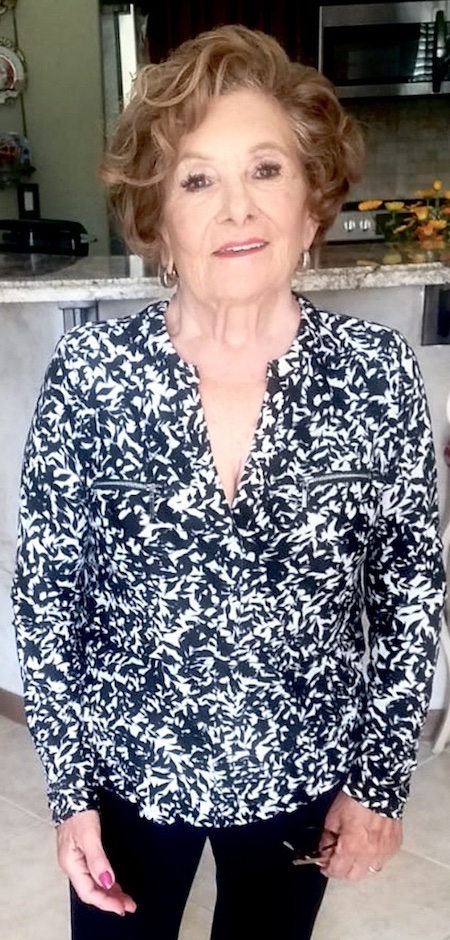For years, Maria L. of Scottsdale was told she may have to undergo open heart surgery to replace a failing aortic heart valve, the doorway to the main artery delivering oxygenated blood from the heart to the body.
Suffering from debilitating symptoms

Her condition left her progressively debilitated and forced her to give up her decades-old work as a hairstylist. “It made me very tired and dizzy,” Maria explains. “You can’t breathe. You have to go on oxygen.”
At age 81, Maria could not afford to take a year off to recover from open-heart surgery. Her husband, Franco, 84, had suffered a stroke, leaving him unable to speak or take care of himself.
“I couldn’t take a year off to just sit back and watch,” says Maria. “I’ve got to take care of him. My time is his. My life is not my own now.”
So, she kept putting off the surgery. Maria was not prepared to go through the same year-long ordeal as her older sister, Camela, who underwent open heart surgery nearly a decade ago to replace a similar heart valve.
Discovering a new treatment option
Then, during one of her twice-a-year checkups, Maria was told of a new clinical trial at the HonorHealth Research Institute — the J-Valve TF Early Feasibility Study — involving a nonsurgical procedure to replace her aortic valve.
David Rizik, MD, interventional radiologist and medical director of the Cardiovascular Research Division at the Institute, is the principal investigator for the clinical trial. Dr. Rizik performed the replacement, which consisted of a new artificial valve delivered via a catheter to the heart through a large blood vessel in the leg.
Once the new valve is expanded, it pushes the old valve leaflets out of the way and the tissue in the replacement valve takes over the job of regulating blood flow, keeping blood from leaking from the aorta back into the heart. Maria, the first Arizona patient to receive the device, was only in the hospital for two days of recovery.
“It’s like a miracle,” shares Maria. “I didn’t feel a thing (painless). I was only in the hospital for two days. I was on my feet from the first day I came home.”
She also has nothing but praise for Dr. Rizik and his team. “He’s marvelous,” Maria says. “As soon as he talked with me, I trusted him. He knows what he’s doing. He’s terrific. I’m much, much better.”
Offering patients innovative treatment options
The HonorHealth Research Institute is at the front of today’s most important health questions. Established in 2005, the Institute has become a patient destination for treatments often available nowhere else.
Dispelling heart disease myths
Having trouble distinguishing fact from fiction when it comes to heart disease? You are not alone. One of HonorHealth’s cardiologists debunks the top myths so you can more clearly navigate your heart health.
Heart healthy diet and exercise tips
While some heart risks can be hereditary or related to genetics, which are out of your control, there are many lifestyle changes you can control.